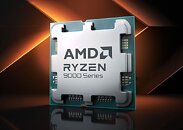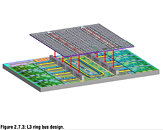- Joined
- Aug 19, 2017
- Messages
- 3,057 (1.08/day)
AMD's upcoming Ryzen 9000X3D series of processors with 3D V-Cache have been reportedly scheduled to arrive in January 2025 and should make a debut at the CES event, a few months later than initially expected. While disappointing for eager enthusiasts, the delay could signify that AMD is taking extra precautions to ensure a smooth launch and deliver a product that meets the high-performance standards set by its previous 3D V-Cache offerings. Delaying the new product launch could also be a strategic move by AMD to avoid potential supply chain issues or to align the launch with other product announcements.
We previously reported that the series will maintain the same cache size configurations as the last generation with 3D V-Cache, and it will just be an upgrade to up the performance of the new Zen 5 design. The launch of the 9000X3D series follows a smaller six-month gap from the regular Ryzen 9000 series, where the previous Ryzen 7000X3D and 5000X3D followed seven and seventeen months after the launch of their regular SKUs, respectively.


View at TechPowerUp Main Site | Source
We previously reported that the series will maintain the same cache size configurations as the last generation with 3D V-Cache, and it will just be an upgrade to up the performance of the new Zen 5 design. The launch of the 9000X3D series follows a smaller six-month gap from the regular Ryzen 9000 series, where the previous Ryzen 7000X3D and 5000X3D followed seven and seventeen months after the launch of their regular SKUs, respectively.


View at TechPowerUp Main Site | Source









 /s
/s